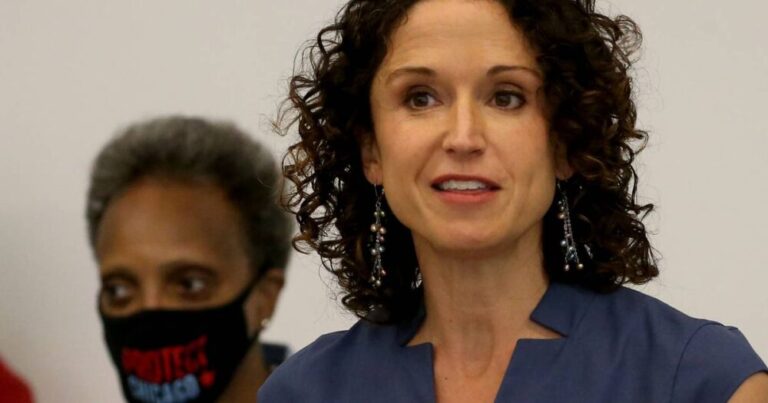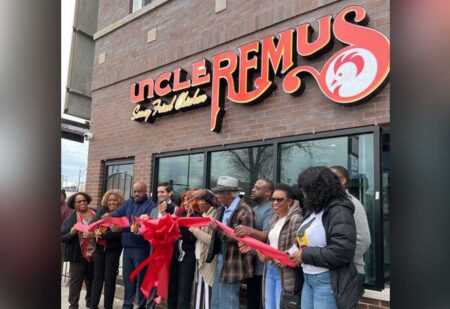Chicago Housing Commissioner Marisa Novara is leaving City Hall, marking the highest-profile departure from the previous mayoral administration since Mayor Brandon Johnson took office.
Novara announced her resignation Tuesday after leading the department for four years and through a time when the city saw mounting concerns over gentrification and homelessness as well as a pandemic. She was appointed in 2019 by then-Mayor Lori Lightfoot after serving as vice president of the Metropolitan Planning Council.
Novara told the Tribune said she appreciates Johnson’s commitment to affordable housing but it’s time for her to “pass the baton” to another commissioner.
“Going into a job like this, time is not promised to you so I really thought of it as a four-year opportunity,” Novara said. “I therefore ran a four-year pace.”
Novara marks the first major department head to exit under Johnson, who has been in office for about two months after defeating Lightfoot in the February mayoral race and then going on to win the runoff election in April. Johnson asked Lightfoot appointees to stay on for a transitional period but some are starting to leave.
Department of Human Resources head Chris Owen also left City Hall recently.
Over the past four years, Novara publicly focused on affordable housing and reversing Chicago’s entrenched segregation, which was a hallmark of her boss’ efforts to center racial equity in housing development and more. But like other Lightfoot appointees, she sometimes faced criticism from progressives in the City Council over not moving aggressively enough on those goals, while more conservative aldermen dinged her for pushing through affordable housing over their objections.
One of the biggest pieces of legislation Novara championed was an overhaul of the city’s Affordable Requirements Ordinance that vastly raised the bar for affordable unit requirements for developers in the city. That came after a previous version of the ordinance in 2015 was followed by lackluster progress. Supporters praised the ordinance revamp for its intent to increase the supply of affordable homes in areas that lacked it, serve lower-income households, expand the number of family-sized units and emphasize affordability near transit.
Another highlight Novara shared with the Tribune was the city’s plan to create $1.3 billion in affordable housing around the city, an effort aimed at spurring investment in underdeveloped neighborhoods while boosting affordability in gentrifying areas.
Novara’s tenure also saw a rare victory over aldermanic prerogative when the City Council approved plans for an affordable housing development on the Far Northwest Side that was supported by Lightfoot’s administration — despite vehement pushback from the ward’s alderman. However, the first-term mayor ultimately did not find much success in dismantling the informal Chicago tradition of giving aldermen massive sway over development and other decisions in their wards, and the controversial Far Northwest Side development has been paused as of April due to market concerns, Block Club Chicago reported.
Novara also led negotiations with a group of activists fighting for affordable housing protections in Woodlawn and other areas near the Obama Presidential Center that is under construction.
The deal struck between the city and the Obama Community Benefits Agreement Coalition capped off a long, contentious debate in which activists felt the concerns of longtime South Siders being displaced were not being taken urgently enough by Lightfoot’s administration. Still, the final ordinance that passed the City Council in 2020 was seen as a strong start for neighbors who fear being priced out of their homes with the advent of the sprawling complex planned in Jackson Park.
During the onset of the coronavirus pandemic in 2020, Novara’s team secured hotel rooms and additional shelter for emergency housing as well as managed the city’s housing assistance grants. Last year, another sweeping housing ordinance known as “Connected Communities” passed the City Council following collaboration between Novara’s department and others on how to incentivize affordable housing near public transit, a move she argued would combat segregation.
Novara also pushed to develop a major affordable housing project at 18th and Peoria streets in Pilsen, a neighborhood long roiled by rising costs.







